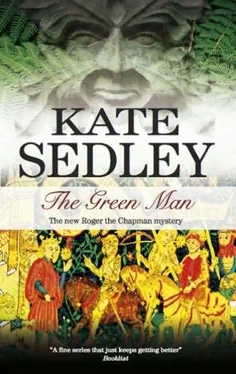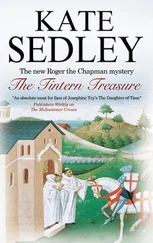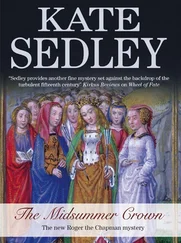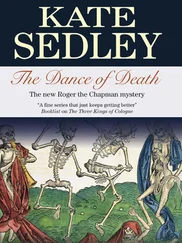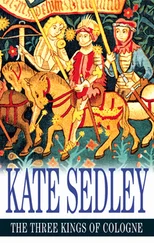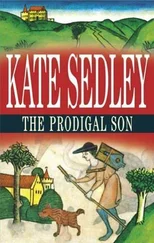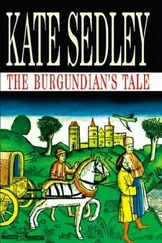Kate Sedley - The Green Man
Здесь есть возможность читать онлайн «Kate Sedley - The Green Man» весь текст электронной книги совершенно бесплатно (целиком полную версию без сокращений). В некоторых случаях можно слушать аудио, скачать через торрент в формате fb2 и присутствует краткое содержание. Жанр: Исторический детектив, на английском языке. Описание произведения, (предисловие) а так же отзывы посетителей доступны на портале библиотеки ЛибКат.
- Название:The Green Man
- Автор:
- Жанр:
- Год:неизвестен
- ISBN:нет данных
- Рейтинг книги:3 / 5. Голосов: 1
-
Избранное:Добавить в избранное
- Отзывы:
-
Ваша оценка:
- 60
- 1
- 2
- 3
- 4
- 5
The Green Man: краткое содержание, описание и аннотация
Предлагаем к чтению аннотацию, описание, краткое содержание или предисловие (зависит от того, что написал сам автор книги «The Green Man»). Если вы не нашли необходимую информацию о книге — напишите в комментариях, мы постараемся отыскать её.
The Green Man — читать онлайн бесплатно полную книгу (весь текст) целиком
Ниже представлен текст книги, разбитый по страницам. Система сохранения места последней прочитанной страницы, позволяет с удобством читать онлайн бесплатно книгу «The Green Man», без необходимости каждый раз заново искать на чём Вы остановились. Поставьте закладку, и сможете в любой момент перейти на страницу, на которой закончили чтение.
Интервал:
Закладка:
I pursed my lips. There was much to mull over here, but, although interesting, nothing that touched on my own problem. After a decent interval to allow for a change of subject, and while I listened to the wind and rain rattling the inn’s many shutters, I asked again, ‘But which of the late earl’s men do you think means you a mischief, my lord? Surely you must have some idea?’
But a snore was the only answer.
The weather changed next day, becoming warmer, drowsy with the scent of wayside flowers, and the amorphous mass of men and horses was able to make better progress. A pale sun caught at the tips of spears with pinpricks of light, and we moved forward, a forest of stars in the afternoon haze. People had come out and were working in the fields, and those who had sheep were beginning the business of washing and shearing them, preparatory to taking their wool to market. But everywhere I looked, I was struck by the truth of my friend the mummer’s words. We had been luckier in the west country than any of us had realized: famine and disease, caused by the winter’s terrible storms and the spring floodings, had taken a greater toll in other parts of the country than anything we had experienced. Children with emaciated limbs, men and women as scrawny as their own scarecrows stopped work and watched us pass in sullen silence, or else mouthed insults and obscenities at us and shook their fists. I remembered that when I had accompanied the army to France, seven years earlier, people in every village that we rode through, shouted, ‘The king! The king!’ and rang the church bells and strewed our path with flowers. Today, the only cries that reached our ears were demands to know why England wasn’t supporting Burgundy against King Louis. The army commanders ignored them, pushing on with stony faces, glancing to neither right nor left, and I doubted that King Edward could even hear them, carried as he was in a litter with the curtains drawn. His doctors had decreed him too weak to mount a horse that day, and for several days prior to that.
In the ordinary way of things, someone as insignificant as myself would have seen little or nothing of the royal entourage, but my instructions to remain closer to Albany than a second skin had brought me into daily contact with the king and his immediate circle. And the shock of my first sighting of King Edward had increased as the days passed, rather than diminished. I recalled him as he was not so very many years ago; a great, golden giant of a man: ‘the handsomest man in Europe’ he had been called, and not without justification. His badge of the Sun in Splendour had described the man to perfection; huge, generous, radiating warmth. But now, he was fat, disease-ridden, his face the colour of unbaked dough, his marvellous energy dissipated by the pleasures of the flesh; too much food, too much wine, too many women. Perhaps I exaggerate a little — women still found him attractive, I was told — but he appeared to me to have deteriorated rapidly since my last glimpse of him, in London, two years earlier. (And as I write these words, an old man in his seventies, I cannot but recall that I have seen the youthful Edward live again in his grandson, our present king, Henry, as unlike his cheese-paring, miserly Tudor father as it is possible to be, but with the same tendency to excess in everything as his maternal grandsire. Will he go the same way as King Edward? Or will he be able to curb his insatiable appetites? Who can tell? Certainly not me. My life will be ended in a few more years.)
And so, after that digression, I have lost my thread, and serve me right. Where was I? Ah, yes! Approaching Fotheringay Castle in those early June days of the year 1482 when I was still a young man — well, comparatively young — of twenty-nine, although a little more than three months off my thirtieth birthday; an unhappy man, desperately missing his wife and children.
Fotheringay was as gloomy inside as it was out.
The Duke of Albany and his retinue were assigned a number of rooms on the ground floor, close to the king’s own suite, which were, as I soon discovered, somewhat more luxurious than those of even such highly placed lords as Earl Rivers and Sir Edward Woodville, two of the king’s brothers-in-law, the Marquis of Dorset, his elder stepson, Lord Hastings, his particular, life-long friend, Lord Stanley and many others. These flowers of the English court were definitely not pleased by Albany’s preferential treatment, and made their annoyance plain, at least to us, his servants, if not to the prince himself. Not that he was unaware of it, but he was not in the least discomposed by their disapproval.
‘After all, I am a future king of Scotland,’ he said to me, as we tumbled into bed that first night, adding with a grin, ‘And you will see tomorrow, or whenever my lords of Gloucester and Northumberland arrive from the north, that I shall be given pride of place when His Highness receives them.’ His voice sharpened. ‘And don’t you move far from my side, Roger! There’s something about this place. I don’t like it. I have a premonition of danger.’
I sighed, not caring if he heard me. What use to me were his feelings and premonitions? What I needed were reasons for them. If I could have talked to any one of my fellow servants — for there was little doubt in my mind that the status of servant was what I had been reduced to — it might have helped. But James Petrie, John Tullo, Davey Gray and the two squires all seemed unable to speak in anything but the broad Scots dialect whenever they found themselves in my company. (I wondered how they had fared in France.) The five of them made their contempt for me, as a Sassenach, perfectly plain; yet, in spite of derision and occasional insolence, they tolerated my presence with far less resentment than I would have expected in the circumstances; a fact that made me wonder if they knew of their master’s suspicions concerning at least one of their number.
I asked Albany.
‘God’s Nightgown, no!’ he exclaimed. ‘I want to flush the bastard out, not put him on his guard.’
‘So what explanation has Your Highness given them for my inclusion in your retinue?’
He laughed. ‘What else but that you are guarding my sacred person from the possible machinations of the English? They know the part you played in my escape from Bristol to Ireland three years ago and that, as a consequence, I trust you. And to tell you the truth, Roger,’ he added, clapping me on the shoulder, ‘that’s not just an All Fools’ Day story. These forebodings that possess me, warning me of danger, might well apply to my English hosts and have nothing to do with my brother’s men. Or-’ At that ‘or’ I heaved another sigh, deeper than before, but Albany ignored me. ‘Or,’ he continued, ‘I could have enemies in both camps.’
‘Or in neither,’ I suggested.
He shook his head. ‘I’m a sensitive soul, Roger. I don’t have the “sight”, I admit that. I cannot “see” things that are about to happen, but I can feel them. Oh, yes! Definitely I can feel them. And I have known for some weeks now that danger threatens me from some quarter or another. I racked my brains for someone disinterested enough to guard me without the possibility of his being in the pay of either my brother, King James, or King Edward, who might secretly have decided to make peace, after all, thus reducing me to an embarrassing encumbrance.’ He gave me a radiant smile. ‘And suddenly, I remembered you, my dear friend and saviour. I knew, at that juncture, that Cousin Edward would deny me nothing. So, here you are!’
‘Just sitting on my arse and doing nothing.’
Albany put an arm about my shoulders and grinned at me. ‘Don’t sound so bitter! I’m paying you well, aren’t I? What I mean is that I will be paying you well as soon as I get my hands on the allowance dear Edward has promised me. Meantime, you’re better fed and clothed, I daresay, then you’ve ever been in your life before. And all you have to do in return is to watch my back.’
Читать дальшеИнтервал:
Закладка:
Похожие книги на «The Green Man»
Представляем Вашему вниманию похожие книги на «The Green Man» списком для выбора. Мы отобрали схожую по названию и смыслу литературу в надежде предоставить читателям больше вариантов отыскать новые, интересные, ещё непрочитанные произведения.
Обсуждение, отзывы о книге «The Green Man» и просто собственные мнения читателей. Оставьте ваши комментарии, напишите, что Вы думаете о произведении, его смысле или главных героях. Укажите что конкретно понравилось, а что нет, и почему Вы так считаете.
